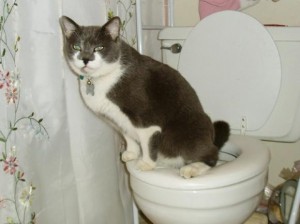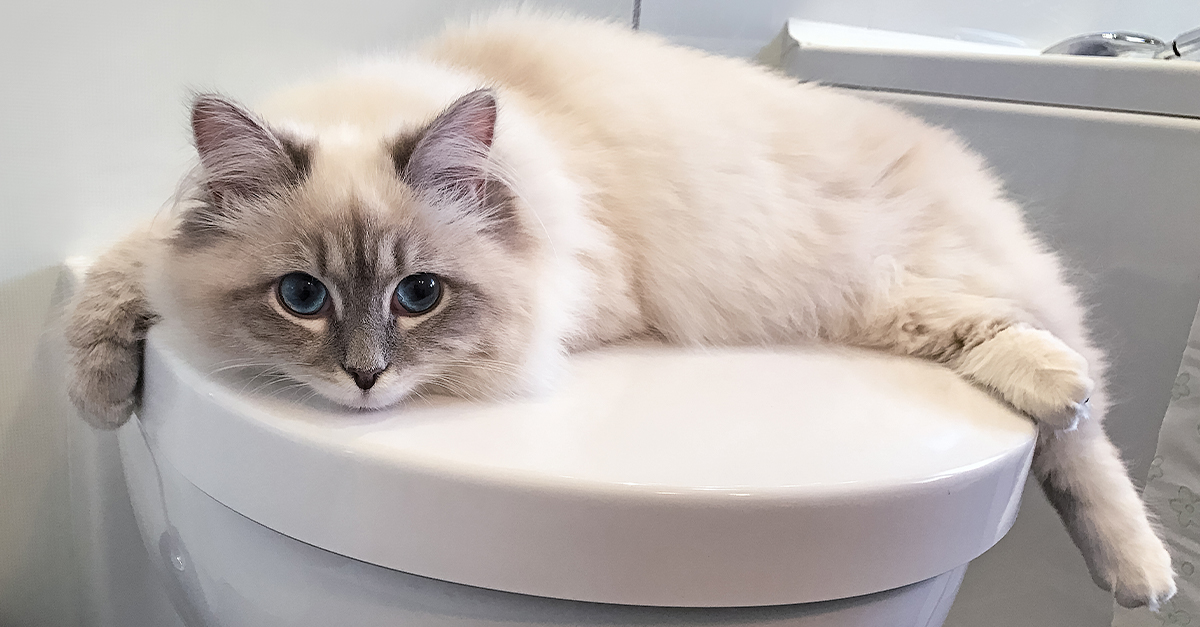Reasons You Shouldn't Flush Cat Poop Down Your Toilet - Preserve Your Plumbing System
Reasons You Shouldn't Flush Cat Poop Down Your Toilet - Preserve Your Plumbing System
Blog Article
This article below involving Don’t flush cat feces down the toilet is without a doubt attention-grabbing. Check it out for your own benefit and figure out what you think about it.

Introduction
As feline owners, it's important to be mindful of how we deal with our feline good friends' waste. While it may seem convenient to purge pet cat poop down the bathroom, this practice can have destructive repercussions for both the environment and human health.
Environmental Impact
Purging pet cat poop introduces unsafe virus and bloodsuckers into the water supply, posing a substantial danger to marine environments. These impurities can negatively impact aquatic life and compromise water quality.
Wellness Risks
In addition to ecological issues, purging cat waste can additionally pose health dangers to human beings. Feline feces might have Toxoplasma gondii, a parasite that can create toxoplasmosis-- a potentially serious health problem, particularly for expectant ladies and individuals with weakened immune systems.
Alternatives to Flushing
The good news is, there are much safer and much more accountable methods to get rid of cat poop. Think about the adhering to choices:
1. Scoop and Dispose in Trash
The most common method of taking care of pet cat poop is to scoop it into an eco-friendly bag and throw it in the garbage. Make sure to make use of a specialized clutter inside story and get rid of the waste without delay.
2. Use Biodegradable Litter
Go with biodegradable feline trash made from products such as corn or wheat. These clutters are environmentally friendly and can be safely taken care of in the trash.
3. Bury in the Yard
If you have a backyard, consider burying cat waste in a designated area away from veggie yards and water sources. Make certain to dig deep sufficient to avoid contamination of groundwater.
4. Set Up a Pet Waste Disposal System
Invest in a pet waste disposal system especially designed for pet cat waste. These systems utilize enzymes to break down the waste, reducing odor and environmental influence.
Final thought
Responsible pet dog possession extends beyond giving food and shelter-- it also includes appropriate waste monitoring. By refraining from purging feline poop down the bathroom and choosing different disposal approaches, we can reduce our ecological footprint and safeguard human wellness.
Why You Should Never Flush Cat Poop Down the Toilet
A rose by any other name might smell as sweet, but not all poop is created equal. Toilets, and our sewage systems, are designed for human excrement, not animal waste. It might seem like it couldn’t hurt to toss cat feces into the loo, but it’s not a good idea to flush cat poop in the toilet.
First and foremost, assuming your cat uses a litter box, any waste is going to have litter on it. And even the smallest amount of litter can wreak havoc on plumbing.
Over time, small amounts build up, filling up your septic system. Most litter sold today is clumping; it is made from a type of clay that hardens when it gets wet. Ever tried to scrape old clumps from the bottom of a litter box? You know just how cement-hard it can get!
Now imagine just a small clump of that stuck in your pipes. A simple de-clogger like Drano isn’t going to cut it. And that means it’s going to cost you big time to fix it.
Parasitic Contamination
Believe it or not, your healthy kitty may be harboring a nasty parasite. Only cats excrete Toxoplasma in their feces. Yet it rarely causes serious health issues in the cats that are infected. Most people will be fine too if infected. Only pregnant women and people with compromised immune systems are at risk. (If you’ve ever heard how women who are expecting are excused from litter cleaning duty, Toxoplasma is why.)
But other animals may have a problem if infected with the parasite. And human water treatment systems aren’t designed to handle it. As a result, the systems don’t remove the parasite before discharging wastewater into local waterways. Fish, shellfish, and other marine life — otters in particular — are susceptible to toxoplasma. If exposed, most will end up with brain damage and many will die.
Depending on the species of fish, they may end up on someone’s fish hook and, ultimately on someone’s dinner plate. If that someone has a chronic illness, they’re at risk.
Skip the Toilet Training
We know there are folks out there who like to toilet train their cats. And we give them props, it takes a lot of work. But thanks to the toxoplasma, it’s not a good idea.

As an enthusiastic reader on How to Dispose of Cat Poop and Litter Without Plastic Bags, I think sharing that section was smart. Sharing is nice. Helping others is fun. Thank you so much for taking the time to read it.
Get Quote Report this page